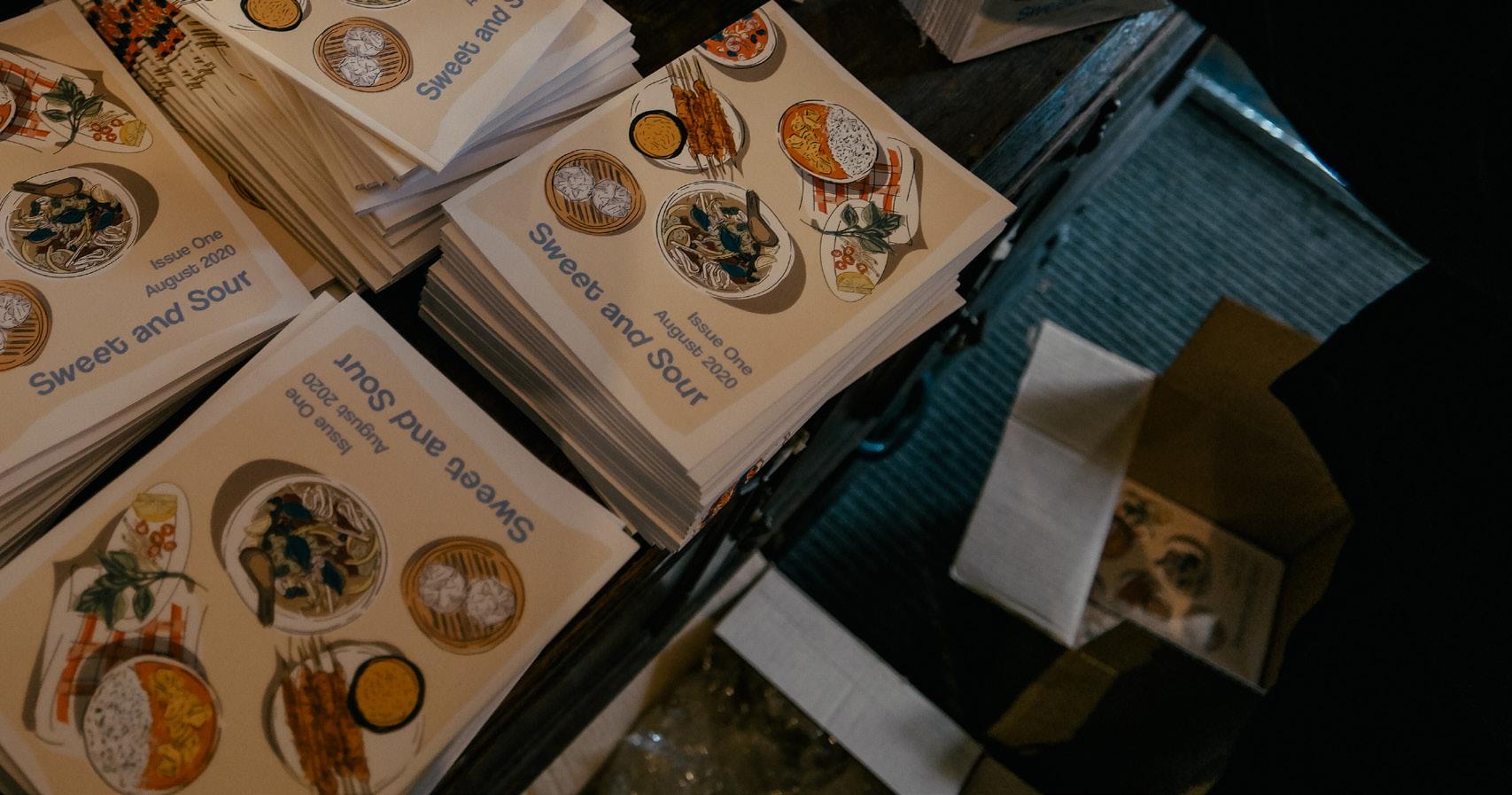ARTWORK: Sydney Farey
I See You, You See Me By Queenie Ung-Lam
Smith’s Alternative drew a large crowd last Saturday afternoon, mostly composed of ANU students, drawing annoyed glares from the usual patrons who were expecting another chill afternoon. Laughter and chatter resounded across the velvet sofas as the students brought their energy to support the launch of Sweet and Sour, a zine dedicated to Asian Australian experiences. Waiting in line to gain entrance, I picked up the zine from a pile sitting on an outside table. Flicking through this zine, I felt thrills all over my body. Here, in my hands, I could finally see my history and culture reflected. I saw myself in the words of others which to this moment, is still a foreign sensation. Growing up Australian Vietnamese, the written word that I consumed largely fell within the confines of white hegemony. Rarely, did I follow the adventures of characters with black hair and tan skin, families didn’t sit down to dinners of rice and fish and parents didn’t speak languages other than English. In stark contrast, the pages of Sweet and Sour were alive with diverse Asian experiences. Each carefully selected artwork or written piece highlighted how the Asian experience differed to the Australian status quo. Often, when we speak of the Asian experience being distinct from an Australian one, this conversation is layered in negative undertones. However, the culmination of diverse voices in the
zine presented a celebration of Asian cultural heritage, a symbol of belonging because of our differences. In the literary zeitgeist, this zine carves out space for our voices, legitimising and then championing our lived experiences. This zine is the coming together of Asian Australian youths to produce art that is relevant and impactful. It is powerful in its ability to bring together people, place and culture, to make individuals feel seen and heard. And when you grow up as part of a minority, I cannot emphasise enough the importance of feeling as if you belong to a society, even if it’ll never be within the majority groups. To face your reflection in the pages of literature, to trace those words and feel the imprints of your history and your culture, is integral to identity. It is undeniably powerful. So, thank you to the Sweet and Sour team for creating this zine and encouraging the flow of discussions which naturally began upon reading its content. It’s more than an example of how bright and creative students can come together to produce art that reflects their heritage. It’s the steady outpouring of diverse voices, ready to saturate mainstream journalism and media. If you missed out on a physical copy of the zine, you can read it online at http://www.sweetsourzine.com/
37.























